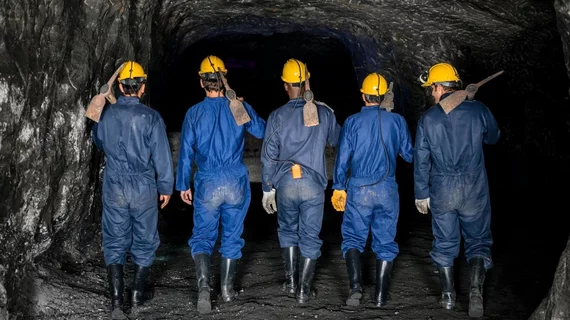‘Alarming’ bias among doctors analyzing chest X-rays for black lung disease
Doctors hired to determine if coal miners have black lung disease are biased toward the organization paying them to read the exams, according to a new study published Friday.
Physicians must be trained and licensed by the National Institute for Occupational Safety and Health and approved by the federal Department of Labor as a qualified B-reader in order to diagnose the disease during workers’ compensation cases.
And after analyzing diagnoses made by more than 260 B-readers over a 13-year period, researchers found some startling results, they explained March 26 in the Annals of the American Thoracic Society.
Physicians hired by a miner’s employer were less likely to diagnose black lung compared to experts employed by the government or miners themselves.
Diagnosing pneumoconiosis—a class of lung diseases caused by dust inhalation—is central to deciding if miners are eligible for workers’ comp benefits under the Black Lung Program. Biases are expected, the authors noted, but they were surprised at the extent of the problem.
"Certainly, we anticipated finding some bias … But the degree of bias shown in this data is alarming," Lee Friedman, PhD, associate professor at the University of Illinois Chicago’s School of Public Health, said in a statement.
To better understand this issue, Friedman et al. analyzed 63,780 radiographs filed by physicians in the Black Lung Program from 2000 to 2013. They found B-readers hired by a coal miner’s employer interpreted images as negative for pneumoconiosis in 84.4% of cases. At the same time, experts hired by the Department of Labor or a miner came to a negative diagnosis in 63.2% and 51.3% of cases, respectively.
"While there is evidence of bias on both sides, it is clear that the degree of bias is much heavier on the employer side, and this is two-fold," co-senior author Robert Cohen, PhD, with UIC’s School of Public Health, added. "Not only are those hired by an employer much more likely to classify a chest X-ray as negative for black lung disease, but it is also much more likely that an employer will have the resources to hire its own expert—at a much higher fee—in the first place.”
The group said their findings underscore the need for a more objective system for diagnosing black lung.
They also believe that “this is just the tip of the iceberg,” warning the issue likely extends beyond the national Black Lung Program.

